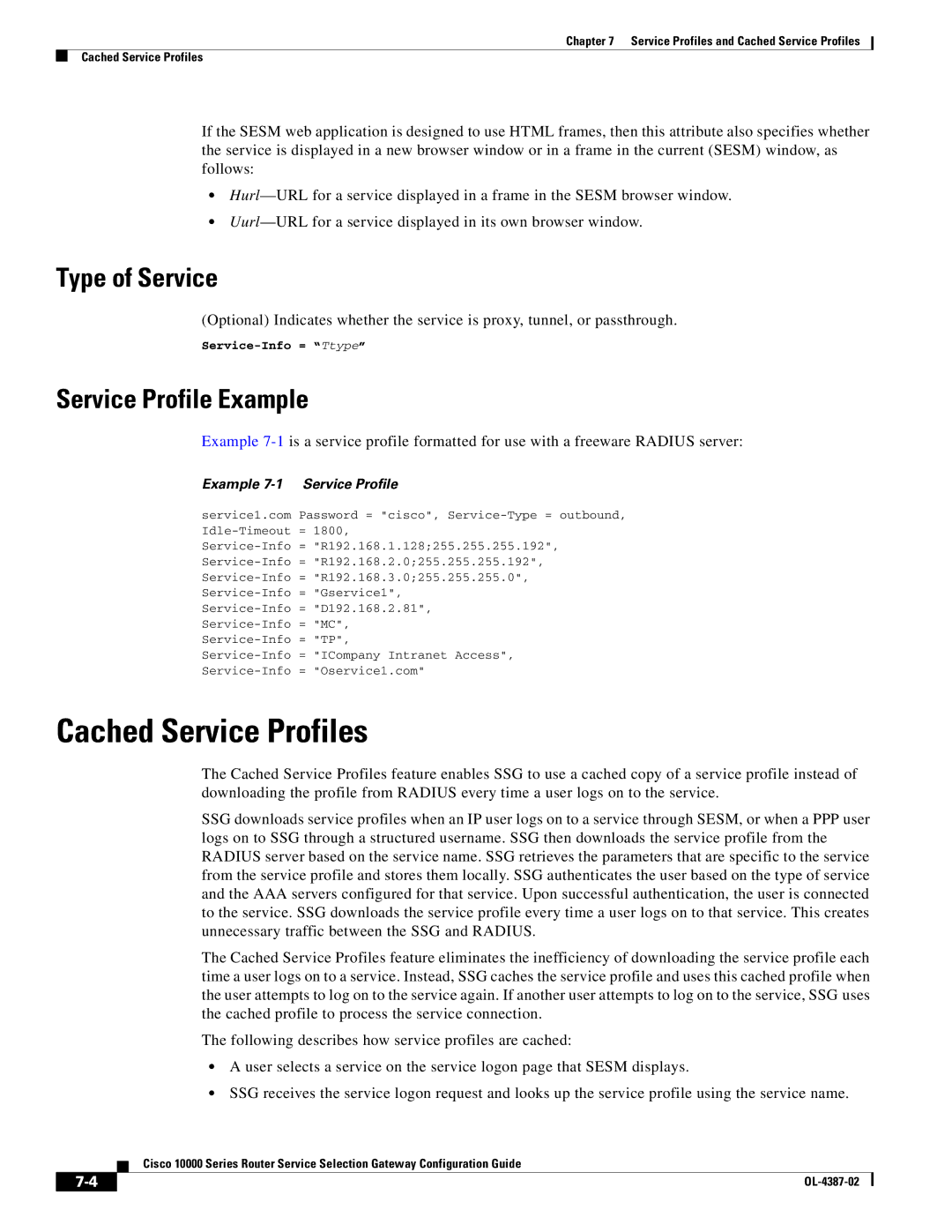
Chapter 7 Service Profiles and Cached Service Profiles
Cached Service Profiles
If the SESM web application is designed to use HTML frames, then this attribute also specifies whether the service is displayed in a new browser window or in a frame in the current (SESM) window, as follows:
•
•
Type of Service
(Optional) Indicates whether the service is proxy, tunnel, or passthrough.
Service Profile Example
Example
Example 7-1 Service Profile
service1.com Password = "cisco",
Cached Service Profiles
The Cached Service Profiles feature enables SSG to use a cached copy of a service profile instead of downloading the profile from RADIUS every time a user logs on to the service.
SSG downloads service profiles when an IP user logs on to a service through SESM, or when a PPP user logs on to SSG through a structured username. SSG then downloads the service profile from the RADIUS server based on the service name. SSG retrieves the parameters that are specific to the service from the service profile and stores them locally. SSG authenticates the user based on the type of service and the AAA servers configured for that service. Upon successful authentication, the user is connected to the service. SSG downloads the service profile every time a user logs on to that service. This creates unnecessary traffic between the SSG and RADIUS.
The Cached Service Profiles feature eliminates the inefficiency of downloading the service profile each time a user logs on to a service. Instead, SSG caches the service profile and uses this cached profile when the user attempts to log on to the service again. If another user attempts to log on to the service, SSG uses the cached profile to process the service connection.
The following describes how service profiles are cached:
•A user selects a service on the service logon page that SESM displays.
•SSG receives the service logon request and looks up the service profile using the service name.
Cisco 10000 Series Router Service Selection Gateway Configuration Guide
|
| |
|
